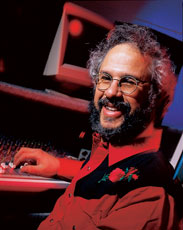|
|
Share and Share Alike |
August 2003 |
|
A guitarist I used to work with loved to chortle, ’ÄúIf it's for free, it's for me!’Äù At the time, he was referring to such common musician's bonuses as fans buying drinks for the band. Today, though, music and software piracy are major issues, and it seems the saying has become, ’ÄúIf it's for me, it's for free’Äù ’Äî a rather different proposition. It amazes me that some people actually feel entitled to take software without paying for it.
That makes it all the more remarkable and wonderful when developers ’Äî usually individuals ’Äî produce programs that legitimately are offered for free or are notably inexpensive and distributed on the honor system.
Freeware and shareware are time-honored traditions in software development. Usually, someone has developed it for personal use, and then decided to give it to the world. Shareware developers want to make (or at least recoup) a few dollars, but they don't expect to get rich and generally don't want to deal with the pressures of commercial development and distribution. They are generous people.
Nowadays, a lot of shareware programs are come-ons for more full-featured commercial versions. There sometimes is a gray area between demos of commercial products and true shareware. But as long as the product doesn't time out and is not crippled to the point that you can't do significant work with it (for instance, the Save feature is not disabled), we should consider it a wonderful gift from the developer, one for which we should be thankful.
We can express our thanks in several ways. When I was a child, my parents taught me that before I used a gift, I had to write a thank-you note. That principle applies here, too, except that we are allowed to use the gift first!
For starters, we can say thanks by paying shareware fees promptly for programs we use; I have found that that generates good karma. Shareware developers remember the people who have supported their work. Furthermore, I have sometimes received better tech support from shareware developers than from commercial software vendors. I don't know how they find time to do it, but I'm glad they do.
Shareware and freeware authors want their work distributed widely, so we can also thank them by giving away copies of shareware and freeware we find useful or fun. Just remind your friends to pay the shareware fees if they like the programs.
That brings us back to my parents' admonishments about thank-you notes. In an era when common courtesy is harder to come by than it used to be, a nice thank-you e-mail to the developer will be greatly appreciated. In fact, you can go a step further: a great way to thank a shareware or freeware author is to offer constructive feedback about the program, including what you like, changes you'd appreciate, a well-researched bug report, and a short and reasonable wish list for future development.
Finally, remember that these folks are giving you something cool for free or for cheap, and they are trusting you by letting you use it before registering it. So don't hammer them about bugs and missing features, just report the problems. You'll be pleased with the responses you get. |
